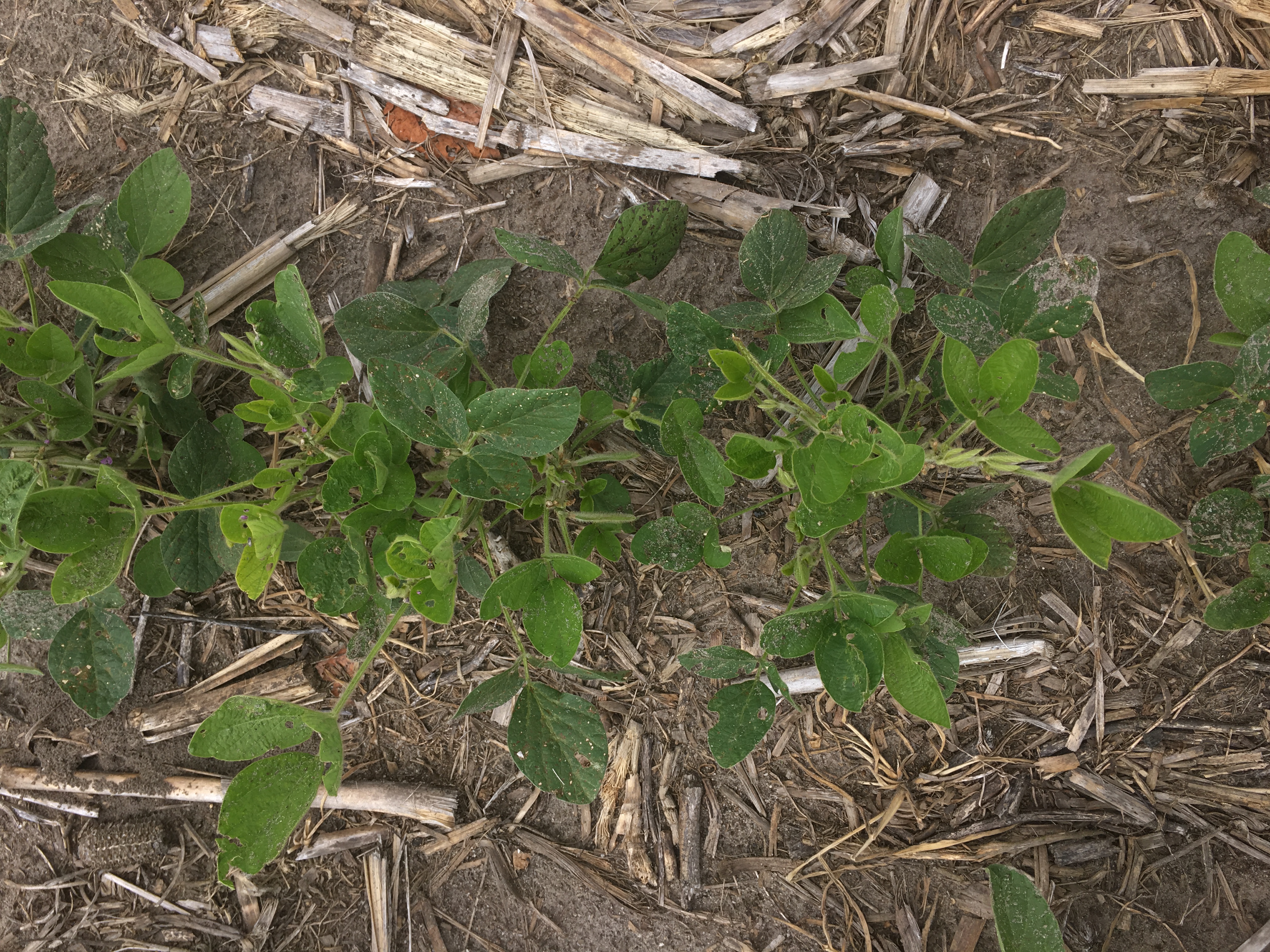Soybean Seed Quality
go.ncsu.edu/readext?664373
en Español / em Português
El inglés es el idioma de control de esta página. En la medida en que haya algún conflicto entre la traducción al inglés y la traducción, el inglés prevalece.
Al hacer clic en el enlace de traducción se activa un servicio de traducción gratuito para convertir la página al español. Al igual que con cualquier traducción por Internet, la conversión no es sensible al contexto y puede que no traduzca el texto en su significado original. NC State Extension no garantiza la exactitud del texto traducido. Por favor, tenga en cuenta que algunas aplicaciones y/o servicios pueden no funcionar como se espera cuando se traducen.
Português
Inglês é o idioma de controle desta página. Na medida que haja algum conflito entre o texto original em Inglês e a tradução, o Inglês prevalece.
Ao clicar no link de tradução, um serviço gratuito de tradução será ativado para converter a página para o Português. Como em qualquer tradução pela internet, a conversão não é sensivel ao contexto e pode não ocorrer a tradução para o significado orginal. O serviço de Extensão da Carolina do Norte (NC State Extension) não garante a exatidão do texto traduzido. Por favor, observe que algumas funções ou serviços podem não funcionar como esperado após a tradução.
English
English is the controlling language of this page. To the extent there is any conflict between the English text and the translation, English controls.
Clicking on the translation link activates a free translation service to convert the page to Spanish. As with any Internet translation, the conversion is not context-sensitive and may not translate the text to its original meaning. NC State Extension does not guarantee the accuracy of the translated text. Please note that some applications and/or services may not function as expected when translated.
Collapse ▲Growers across the state are gearing up to plant soybeans. Dr. Bill Foote, Director of the NC Crop Improvement Association, discusses a few important soybean seed quality considerations below.
A uniform healthy stand of soybean plants is essential to maximize your yield potential. This all starts with genetically pure seeds that have been produced under a strict quality control program designed to maximize seed health, germination, and vigor. The genetic composition of a soybean variety dictates maturity date, disease and insect resistance, plant architecture and many other characteristics. The best assurance of obtaining genetically pure seed is to purchase certified or professionally conditioned seed. Seed health is related to seedborne pathogens present on or in soybean seeds. Pathogens can reduce germination potential and can in some cases transmit diseases. Professional seed producers take specific measures to reduce the level of seedborne pathogens and noxious weeds. Professionally cleaned seed goes beyond simple seed cleaning or basic removal of small and large seed contaminants. Misshapen, off colored, and low density seed are removed to reduce the spread of unwanted diseases, unwanted weeds, and non-uniform seed sizes. Seed lots high in germination and vigor potential will germinate more rapidly, more uniformly and produce more robust seedlings. These seedlings are more likely to survive moderate stress during the weeks following planting.
Always purchase seed from a reputable, professional seed dealer. Bargain seed from a stranger, or even a neighbor, may not be such a bargain. Along with their seed, you could be buying herbicide-resistant weed seed or mixed varieties. More importantly, you may even be purchasing illegally obtained plant genetics when you purchase from questionable sources. Almost all soybean varieties contain some form of plant protection associated with that seed. It may be in the form of licensing, plant patents, utility patents, or other US variety protection. That means saving seed for the purpose of producing next years’ crop is highly restricted and almost always requires permission from the variety owner. This information can best be found from the seed dealer when purchasing seed. If the seed dealer does not know this information, ask them to determine the level of seed protection or find another dealer. Public varieties offered for sale are typically protected by a license or a Plant Variety Protection Certificate. Much of the public variety information, including producers’ contact information and varieties produced, can be found at the North Carolina Crop Improvement Association (NCCIA) website. A brief summary of conventional varieties commonly offered for sale in North Carolina with the corresponding level of protection is contained in the table below.
| Variety Name | Variety Protection | Can I Save Seed? |
| NC Miller | Plant Variety Protection Act | Yes-acreage limited to original planting |
| NC Roy | Plant Variety Protection Act – Title V | No-can only be reproduced as a class of certified seed |
| NC Dunphy | NCSU License | No |
| NC Dilday | NCSU License | No |
| NC Wilder | NCSU License | No |
| NC Raleigh | None | Yes |
| N7003CN | NCSU License | No |
| N8002 | NCSU License | No |
| Jake | Plant Variety Protection Act | Yes-acreage limited to original planting, applies to certified classes only |
| Cheraw | Plant Variety Protection Act | Yes-acreage limited to original planting, applies to certified classes only |
| Corbin | Virginia Crop Improvement License | No-can only be reproduced as a class of certified seed |
| USG Ellis | US Plant Patent | No |
| USG 5618V | US Plant Patent | No |
Other useful seed information:



